Caring baby ducks or ducklings is very important for successful duck farming business.
The ducklings which have just hatched from their shells need a warm and safe environment to grow up strong and healthy. And strong and healthy ducks are the key for successful business.
The ducklings will grow properly if you can create a suitable home and provide them with plenty of food and water.
Caring Baby Ducks/Ducklings
The ducklings are very cute, and caring baby ducks is very easy. Here we are describing about how to make the ducklings feel at home, keep them safe from harm and feed them what they like to eat.
Shelter
Suitable shelter with all required facilities is a mandatory for the ducklings. The shelter should be large enough so that the ducklings can fully expand their wings and groom, and the room should be well ventilated. Follow the steps below for making a suitable shelter for your ducklings.
Find a Brooding Box
After the ducklings have spent about 24 hours (after they have hatched from their shells) and getting used to their new surroundings, they become ready for moving to a brooder.
A sturdy cardboard box, a plastic storage container or a large glass aquarium can all work for this purpose. As the ducklings need to stay warm, so the box should be well-insulated.
Avoid boxes with too many holes in the sides or the bottom. And line the bottom of the box with wood shavings or old towels. Using slippery material or newspaper should be avoided.
The ducklings can slip easily and hurt themselves on surfaces like plastic or newspaper, because they are still wobbly on their legs for the first few weeks after they hatch.
Install Brooding Lamp
After hatching, the baby ducks need to be kept very warm in the first few weeks. Providing warm environment for the first few weeks will give the ducklings a chance to get used to the chilly air outside their eggs.
You can easily buy a brooding lamp from your nearest hardware store or feed store, and install the lamp to the top of the brooder. Initially starting with a 100 watt bulb will be good, and such a bulb will create enough amount of heat for the ducklings.
Ensure that part of the brooder is located away from the heat, so that the ducklings have a place to cool off if they need to.
Also ensure that the bulb is not too close to the ducklings, because this may cause them to overheat or they could get burned if they touch the bulb.
Properly check the placement of the lamp and ensure that the babies are getting right amount of warmth. Adjust the heat and wattage of the lamp based on the behavior of the babies as they get older.
If the baby ducks tend to huddle close together under the lamp, then they may be too cold. And in such case, you should move the lamp closer or get a higher wattage bulb.
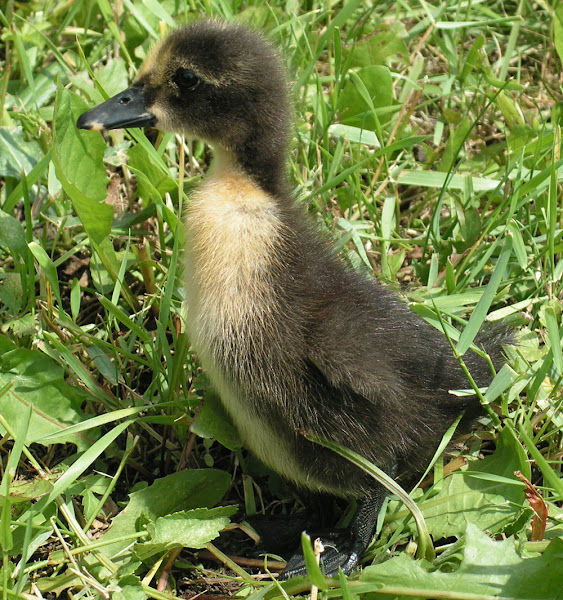
But if the ducklings are scattered out and if they are breathing heavily, then they are most likely getting too much heat. In such case you need to move the lamp further away or use a lower wattage bulb. The comfortable ducklings should be warm and settled.
The ducklings will need less heat, as they grow older. You can adjust the temperature by raising or changing the bulb to a lower heat when they stop sleeping under it.
Feeding
After hatching, the ducklings do not eat for the first 24 hours. Because during this period they absorb nutrients from the yolk inside the egg they hatched from. Feed the ducks chick starter feed with 20 percent protein for the first 10 weeks (non-medicated chick starter will be good).
Then change to grower feeds with 15 percent protein from 10-18 weeks. From 18 weeks of age, you can feed your ducks with regular layer feeds with around 16 percent protein. You can purchase ready-made feeds from your local poultry feed supply stores.
Plastic feeder will be good for feeding the ducklings. So purchase a plastic feeder, fill it up and place it in the brooder. Never feed your ducklings without water.
Adding little amount of water to their food will help them to swallow the food easily. Adding a very small amount of sugar to their water for the first couple of days will help them get off to a good start and also give them energy.
Ducklings also appreciate finely chopped vegetables, greens or finely chopped fruits also. They also prefer small insects and worms.
Ducks generally eat more than chickens, so ensure the ducklings have access to food throughout the day.
They need to able to eat whenever they are hungry, because they grow very quickly at this stage of life.
Supply Adequate Water
A ready source of clean water is a must for caring baby ducks. Chick fountains will be good for this purpose. They will play in water, making a mess (so be sure to clean it often).
Supply water to the ducklings in such a way, so that they can easily escape from it. Because the baby ducks love to play in water, but they can easily drown if they tire.
Change the water and clean the bowl daily. Cleaning daily is necessary to ensure the ducklings do not get sick from drinking dirty water.
Keep the Ducklings Safe from Predators
Keeping the ducklings safe from predators is also a part of caring baby ducks. The ducklings can be a target for predatory animals, especially when they are young.
Raising baby ducks inside your home or a house will be good. Or if you raise them outside, make a fence around the brooder.
Caring baby ducks properly can ensure healthy and strong adults. And healthy adult ducks are the key to success in duck farming business. So, always try to take good care of your ducks.

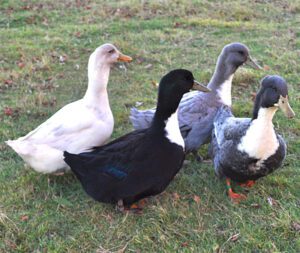
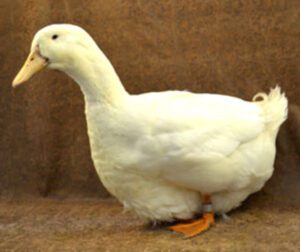
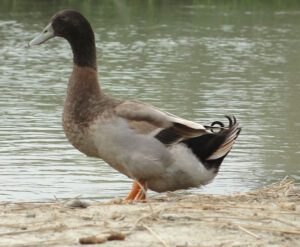
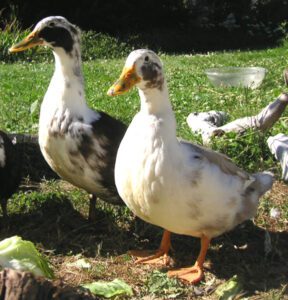
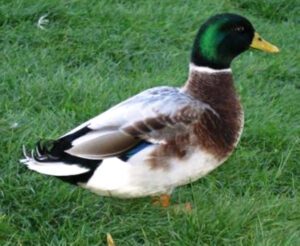
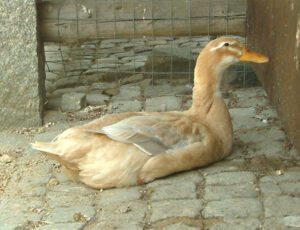
Article was an eye opener because just some ducklings delivered by three mother’s. Since they have mums, an leaving them in their custody for now. Is this alright?
Alright, no problem!